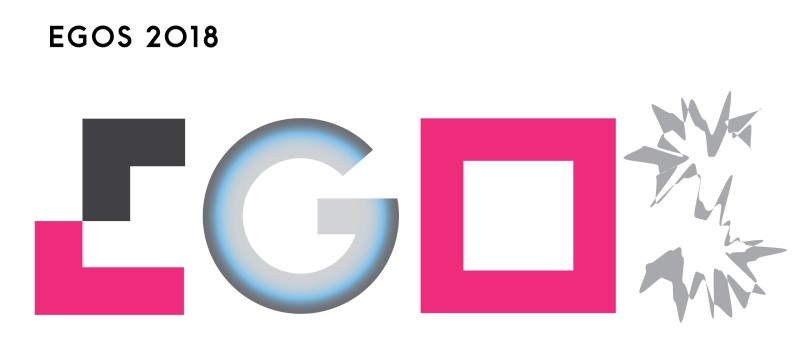PDW 01: Making Process Visible: Recognizing and Visualizing Action Patterns
Call for Applications
Purpose
Process theorizing has become increasingly important in capturing and explaining organizational phenomena,
processes, practices and routines (Czarniawska, 2008; Langley et al., 2013; Langley & Tsoukas, 2016). Process theorizing
is most visible in the turn from nouns to gerunds (-ing), such as Weick’s (1979) well-known shift from organization to ‘organizing’,
and it entails far-reaching rhetorical, methodological and theoretical implications. In this PDW, we explore the methodological
implications of studying organizational phenomena from a process point of view. In particular, it addresses the difficulties
of making process visible and analyzing it. Scholars of organizational routines have long struggled with the challenges of
observing and interpreting patterns of actions, and, more generally, process scholars have pointed to the limitations of representing
process with models containing boxes and arrows (Czarniawska, 2008; Feldman, 2016; Langley et al., 2013). Pentland (2017)
notes that “we are writing about these [processual] phenomena, but we have not made them visible. And because of inherent
limitations of grammar, text is probably better at hiding process than revealing it.”
This PDW –
linked to the EGOS Standing Working Group (SWG) 06 – is exploratory in nature and hands-on, using two techniques for analyzing
processual data, that is (1) coding textual data for discovery, and (2) visualizing digital traces of sequences of actions
with a software application called ThreadNet (Pentland et al., 2017). We will use these two techniques to discuss
the challenges and potential pitfalls of analyzing processual data, for example: What patterns do you see/not see with each
technique? What do these patterns mean? How do patterns lead to discovery? And what new questions can we raise for analysis?
We will also reflect on how using and iterating between different techniques for analyzing organizational processes advances
discovery and theorizing.
Format
We will provide PDW participants with a sample data set and jointly use the two techniques to analyze the data.
TThe first part of the PDW will focus on coding for discovery. The participants will manually code textual data with a specific focus on discovery and advancing theory (Golden-Biddle et al., in process; Locke et al. 2016).
The second part of the PDW will focus on analyzing digital traces of sequences of actions. The digitized world is generating data about processual phenomena, in the form of click streams, event logs, video surveillance and more, but these data streams cannot be interpreted at face value (Pentland, 2017). Actions are situated in context and hence require a researcher that understands the context for interpreting the data and identifying patterns of actions.
This PDW is targeted at PhD students and early career scholars and we also welcome more experienced
participants. The target audience includes scholars of organizational routines, process scholars from varying backgrounds
and qualitative researchers with an interest in process methods.
Application
Please submit – via the EGOS website – by April 30, 2018 a single document of application (.doc, .docx or .pdf file) that includes the following information:
On the first page: a cover page including full details of name, address (postal address, phone & email), and affiliation;
Area of research;
Experience in qualitative data analysis.
We will accept a maximum of 25 participants.
References
- Czarniawska, B. (2008): A Theory of Organizing [1st ed.]. Cheltenham: Elgar.
- Feldman, M.S. (2016): “Making Process Visible: Alternatives to Boxes and Arrows.” In: A. Langley & H. Tsoukas (eds.): The SAGE Handbook of Process Organisation Studies. London: SAGE, 625 ff.
- Golden-Biddle, K., Feldman, M.S., & Locke, K. (in process): Coding for Discovery.
- Langley, A., Smallman, C., Tsoukas, H., & van de Ven, A.H. (2013): “Process Studies of Change in Organization and Management: Unveiling Temporality, Activity, and Flow. Academy of Management Journal, 56 (1), 1–13.
- Langley, A., & Tsoukas, H. (eds.) (2016):The SAGE Handbook of Process Organisation Studies. London: SAGE.
- Locke, K., Feldman, M.S., & Golden-Biddle, K. (2016): “Discovery, Validation, and Live Coding.” In: K.D. Elsbach & R.M. Kramer (eds.): Handbook of Qualitative Organizational Research. Innovative Pathways and Ideas. New York, NY: Routledge.
- Pentland, B.T. (2017): “Book review: Ann Langley and Haridimos Tsoukas (Eds.) The SAGE Handbook of Process Organization Studies.” Organization Studies, 38 (12), 1796–1800.
- Pentland, B.T., Recker, J., & Kim, I. (2017): Capturing Reality in Flight? Empirical Tools for Strong Process Theory. Proceedings of the International Conference on Information Systems, Seoul, South Korea.
- Weick, K.E. (1979): The Social Psychology of Organizing [2nd ed.]. New York: McGraw-Hill.


